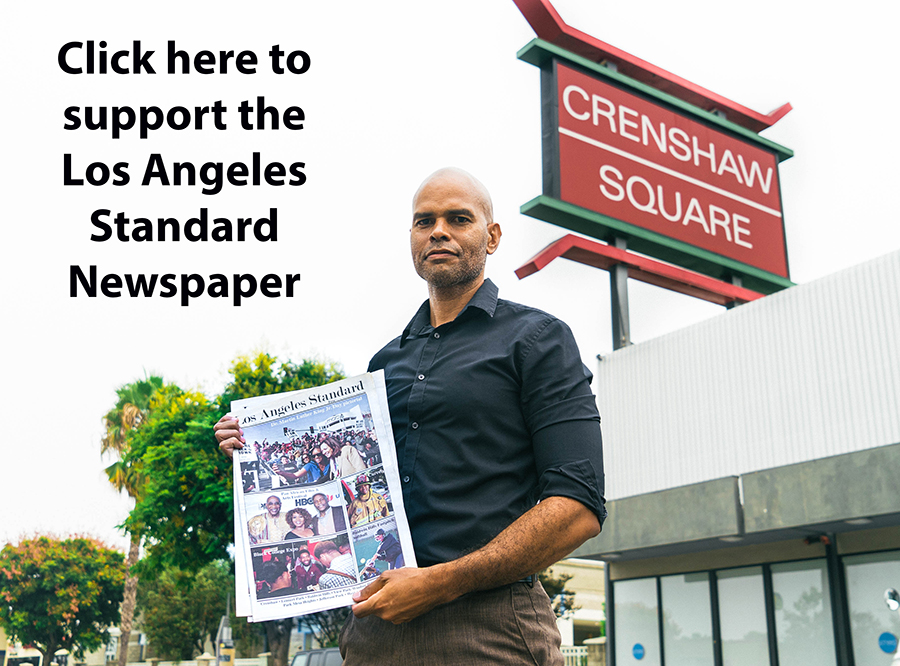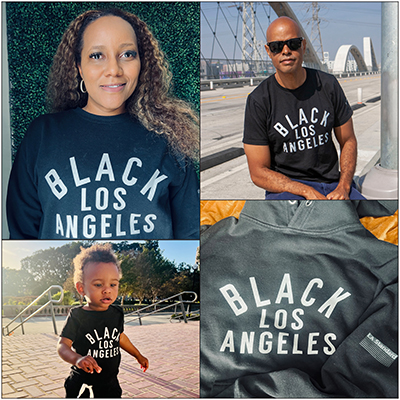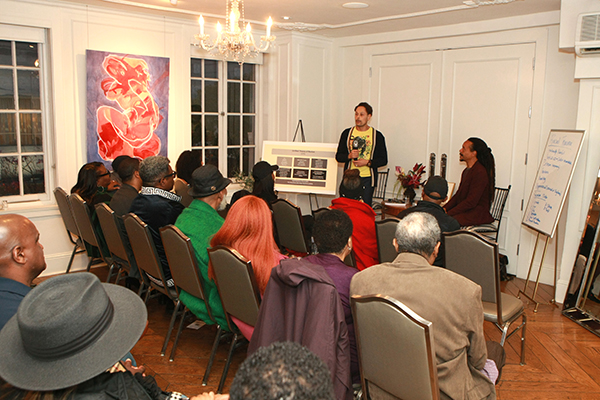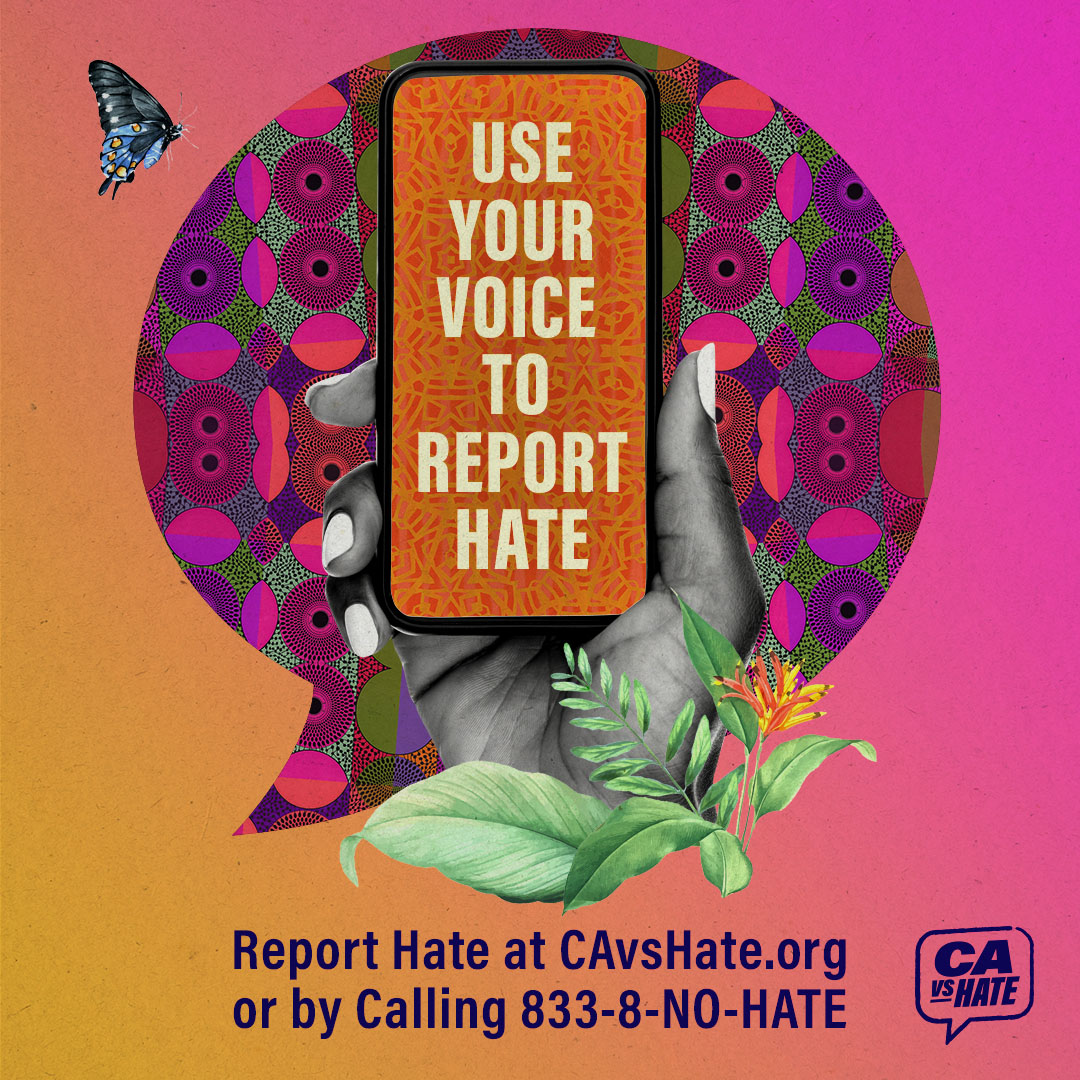Dr. Yamonte Cooper has examined a subject that is not well researched: Black male trauma.



By Jason Lewis
Black people in the United States have suffered through slavery, segregation, more recently mass incarceration, and centuries of racist laws and policies created in large part by White men. According to author Dr. Yamonte Cooper, the target of White men has been Black men, and White men have targeted Black men to stunt the growth of the Black race.
Cooper, who is a scholar, author, and professor of counseling, recently held a discussion about his book, “Black Men and Racial Trauma: Impacts, Disparities, and Interventions,” where he said that there was not much research done on the trauma that to which Black men have been subjected. He pointed to a Journal of Counseling & Development article that stated that from 1972 to 2022, they could only find 102 articles on Black males’ experiences with counseling, but Cooper said that with most other groups, there are thousands of articles.
“White men and White women have articles written about them, and it’s common for articles and research to be conducted about Black women,” Cooper said. “So to have 102 articles over a 50-year period is unusual and it indicates that Black males are understudied. There isn’t much out there about Black males.”
During Cooper’s discussion about his book, he spoke about social dominance and how White men have used that to target Black men with the goal of oppressing Black people.
“Social dominance theory looks at the dominant in-group (White people), and how they maintain dominance and how they maintain control over resources,” Cooper said. “And how racialized in-groups are situated within that dynamic. It looks at how racialized men are the targets within that dynamic, because they are seen as a sexual threat. They’re seen as a threat to the resources and to the future of that powerful dominant in-group.
“Anti-Black racism is anti-Black misandry primarily and Black women are affected because of their proximity to Black males. Black women are casualties, but the primary targets are Black males. I talk about that in the book and provide a lot of empirical research on that.
“That doesn’t mean that Black women have it easy, because they don’t. But the primary group that is being targeted are Black males because they’re seen as a threat. The FBI named Black males as the Black messiah (Black person who could unify and electrify the militant Black nationalist movement). Martin Luther King could be a Black messiah. Stokely Carmichael, or Malcolm X. They’ve never named a Black woman as a potential Black messiah because they don’t view Black women as a threat. That’s just the reality. So Black men are a target in a White racist society.”
Cooper pointed out that a researcher from Harvard looked at 99 percent of the U.S. population and found that Black males, regardless of their socioeconomic status, including Black males from wealthy families and communities that were integrated with wealthy White families, had a downward economic social mobility. Black males were the only demographic of all of the demographics that this was true for.
“Part of the genocidal logic is to make sure that Black men don’t have employment, are on the lowest rungs of society when it comes to employment, so that Black people can’t survive,” Cooper said.
“Black males experience this unique economic deprivation where they are not allowed to accumulate capital. They are not allowed to be in employment settings and managerial positions. So, you collapse families when you don’t have two people substantially earning.”
Cooper correlates the historic actions of White men to warfare against Black people, and that oppressing Black people is by design.
“People don’t understand that it’s an aspect of warfare, population control, population decimation, and it’s intentional,” he said. “It’s not this idea of, ‘Oh, this group doesn’t like me and this group is mistreating me.’ No, it’s an actual structuring to make sure that a population doesn’t grow. They’re targeted with violence intentionally. People often think of genocide with the Holocaust, and that it’s a specific event. But genocides are not necessarily time bound. Genocides against Black people in the United States is not one specific event. It’s a continuation of events that has taken place since emancipation. It’s difficult for people to conceive that what’s happening specifically to Black people, and specifically to Black men is intentional. It’s not by accident or by happenstance. It is by design to have dominance over a group.”
Cooper discussed the larger oppressive events that happened over the last few centuries. Africans had to endure the Walk of Sorrow as they were led to slave ships, and then they had to endure the Middle Passage to the Americas. When it became illegal to import Africans to the United States, the domestic slave trade rose as Black people were forced to breed to create more slaves. About 30 to 40 percent of Black families were broken up during this time. After slavery, convict leasing and Black codes where emancipated Black people were arrested for little to know reason became the norm. Convict leasing was in a sense worse than slavery because the enslavers had a financial investment in the enslaved Black person while the prison system did not. At this time segregation became the norm, and many Black people were lynched. Over 70 percent of them were Black men. After the Civil Rights era ended segregation, the crack epidemic, which was a war against poor and working-class Black people, took place.
Cooper pointed out that policing in the U.S. started out as slave patrols, and the primary targets were Black males. He also discussed the criminalization of Black people over the last 50 years.
“People believe that Black people are a crime-prone group, but that’s just not accurate,” he said.
Cooper said that Black men account for 47 percent of those who are proven wrongfully accused or convicted. Black men who are convicted for murder are 50 percent more likely to be innocent than other convicted murderers. Black Americans who are convicted of murder are more likely to be innocent if they are accused of killing a White person. A Black person convicted of sexual assault is three-and-a-half times more likely to be innocent than a White sexual assault convict. The targeting of Black males begins as early as adolescence when they are stopped, harassed and arrested by police officers at a higher rate than White youths.
In the United States there is a belief among many people that racism does not exist and that Black people are just playing a victim role. Cooper pointed out that many people are misinformed and have an anti-Black bias.
“Over 50 percent of the U.S. population does not read beyond a sixth grade level,” he said. “That says that people are not reading and their comprehension does not go beyond the sixth grade. So we’re being conditioned through social media that we need instant results and soundbites, and that’s what we take as truth. People are not really taking the time to read.
“When it comes to implicit bias research, it demonstrates that over 70 percent of Americans have a pro-White/anti-Black bias. That includes Latinos, Asians, and that includes 50 percent of Black people. To believe that someone who has melanin understands racism is not accurate unless they’ve been doing research. I’ve been doing research for over 30 years, and you have to continually be reading and studying to understand how this functions.”
Cooper’s book is extremely important, because as he said, there was not a book of its kind on the market. He pointed out that he’s had a history with dealing with the police during his lifetime, that he’s had employment opportunities blocked, and that he’s been treated differently because he is a Black male.
“I noticed that there wasn’t a resource that I could go to that could speak to what I was witnessing and experiencing without it being a deficient or a pathology oriented framework that was being introduced, like Black men are broken,” he said.
“It’s important for me to state that when I think about Black people, and Black men specifically, Black men are not broken, and Black people are not broken. I don’t come from that framework that there’s some inherent deficit. For Black people to still be here, that’s a testament to the strength of Black people. There is nothing wrong with Black people.”
Cooper is also the co-editor of “Black Couples Therapy: Clinical Theory and Practice.” For more information about Cooper and his work, visit www.yamontecooper.com. His books can be purchased through his website and Amazon.











